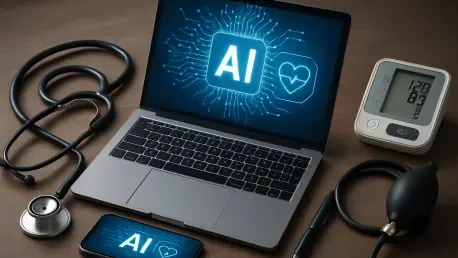
In the fast-evolving world of telehealth, where innovation meets necessity, Teladoc Health stands at a crossroads with a significant leadership change coinciding with impressive financial results, sparking industry-wide discussions. The departure of Chief Financial Officer Mala Murthy on November

In a groundbreaking stride toward better emergency care, hospitals and emergency medical services (EMS) along Utah’s Wasatch Front have embraced a transformative approach to patient treatment through data sharing, redefining how critical information flows between field responders and medical

As the clock ticks down to a critical deadline of midnight on September 30, the federal government teeters on the edge of a shutdown, placing millions of Americans who depend on Medicare telehealth services in a precarious position, with their access to remote healthcare hanging in the balance.

The U.S. healthcare landscape is undergoing a seismic shift, with artificial intelligence (AI) emerging as a pivotal force in addressing systemic challenges like overcrowding, escalating costs, and clinician burnout. At the HLTH 2025 conference in Las Vegas, health system leaders from across the

As the global population ages, managing chronic conditions like diabetes becomes an increasingly pressing challenge, especially for older adults who may struggle with traditional healthcare approaches. With the rise of digital solutions, mobile health apps have emerged as a potential game-changer

What happens when life feels like a constant juggling act—caring for aging parents, raising young children, and grappling with healthcare costs that seem to climb by the day? For millions of Gen X and Millennials, the answer lies in a surprising ally: health AI tools. These generations, often